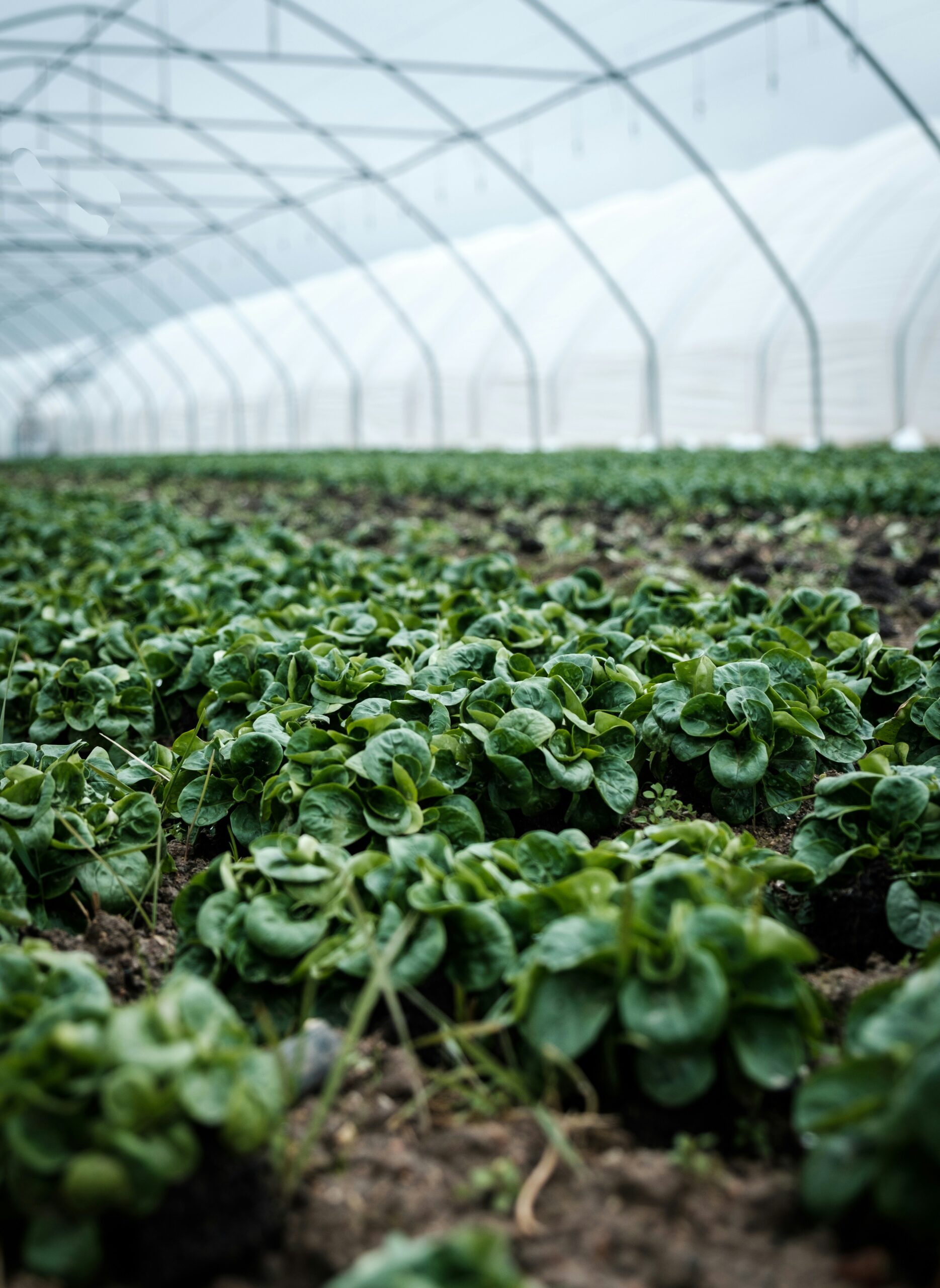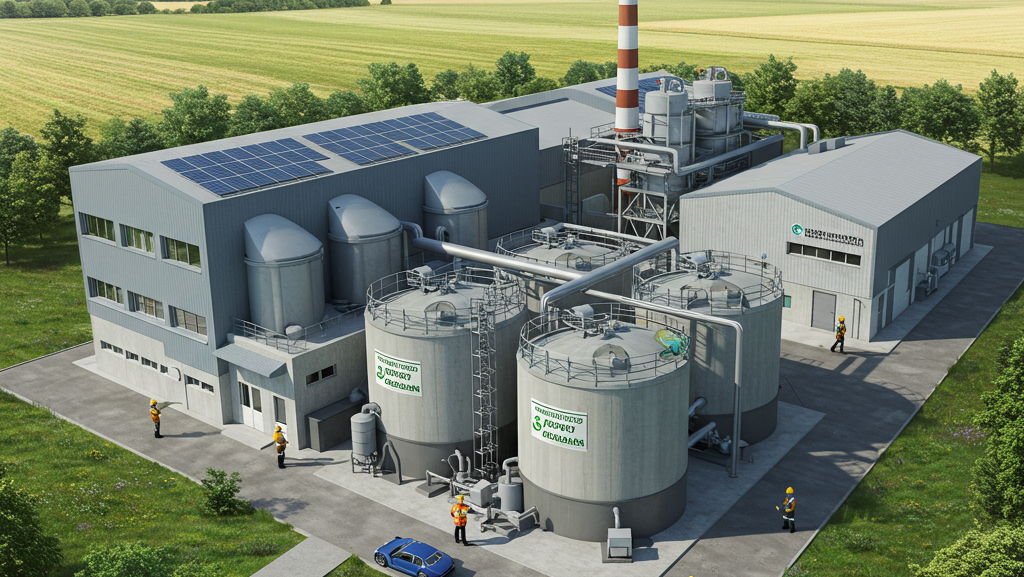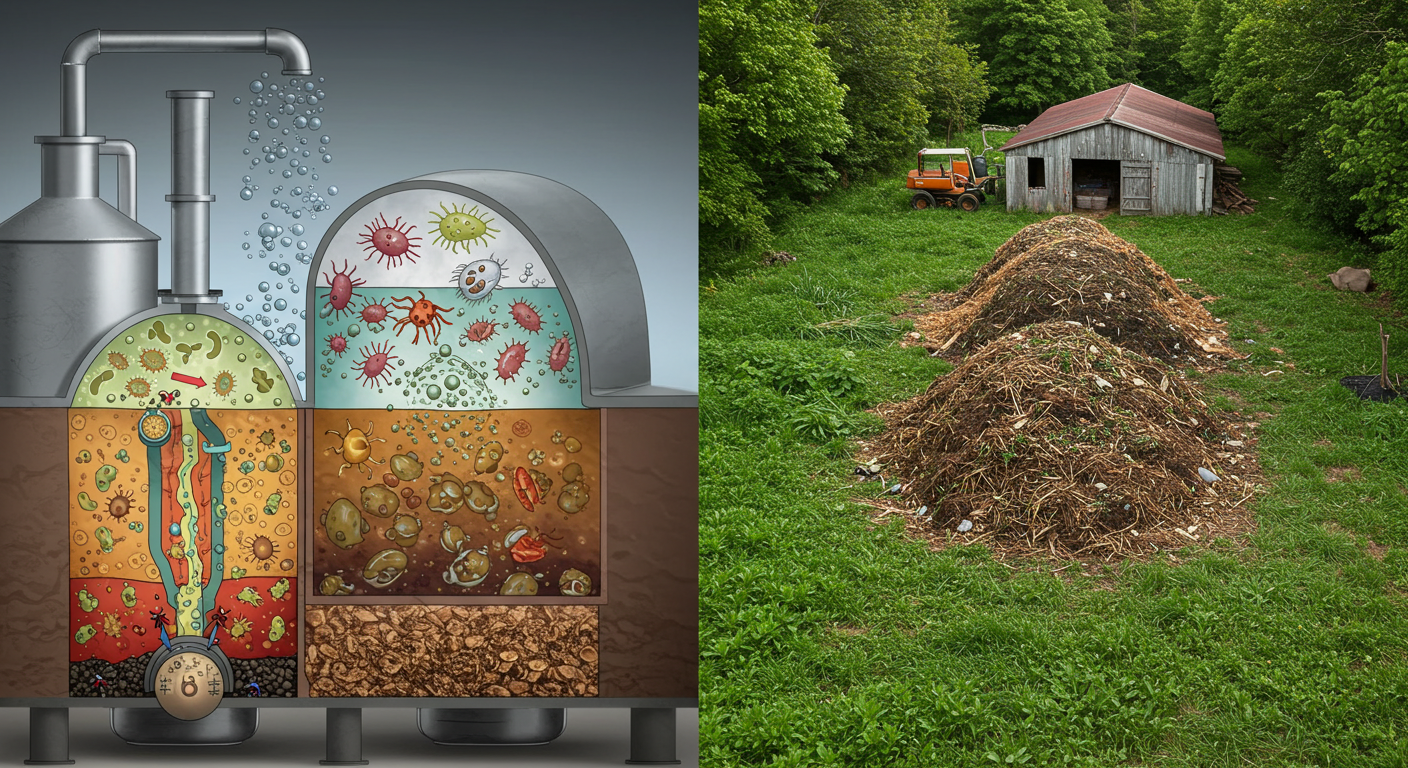Introduction to Smart Farming
Smart farming represents a transformative approach within the agricultural sector, integrating advanced technologies to enhance productivity and efficiency in farming practices. This modern agricultural paradigm seeks to address the pressing challenges posed by climate change, population growth, and the increasing demand for food while ensuring sustainability and resource management are prioritized.
At its core, smart farming leverages a variety of technologies, including the Internet of Things (IoT), big data analytics, artificial intelligence, and robotics. These tools enable farmers to collect and analyze data in real-time, facilitating informed decision-making. By utilizing sensors and drones, for instance, farmers can monitor crop health, soil conditions, and environmental factors with unprecedented precision. This data-driven approach helps optimize farming operations, reducing waste and maximizing yield.
The significance of smart farming extends beyond mere productivity. As traditional farming methods face limitations under the strain of modern demands, integrating technology helps create more sustainable practices. By employing precise resource management, farmers can reduce water consumption and minimize the use of fertilizers and pesticides, thus lowering their environmental footprint. Smart farming also enhances the resilience of agricultural systems, allowing them to adapt to unpredictable variables such as weather fluctuations and pest outbreaks.
In light of growing global challenges, the adoption of smart farming techniques is not just a trend but a necessity. This innovative approach provides farmers with the tools to implement effective strategies that enhance productivity while fostering sustainability. As the agricultural sector continues to evolve, it becomes imperative that stakeholders embrace these advancements to ensure food security and environmental stewardship for future generations.
The Role of Technology in Agriculture
In recent years, the agricultural sector has witnessed a significant transformation driven by technological advancements. Smart farming has emerged as a revolutionary approach, leveraging various technologies to enhance agricultural productivity and sustainability. Among the key innovations are Internet of Things (IoT) devices, drones, autonomous machinery, and data analytics. Each of these technologies plays a crucial role in promoting precision agriculture, enabling farmers to make informed decisions and improve their overall farming practices.
IoT devices serve as the backbone of smart farming, connecting a network of sensors and equipment that provide real-time data on crop conditions, soil health, and weather patterns. This continuous stream of information allows farmers to monitor their fields remotely and respond proactively to changing conditions. For instance, moisture sensors can alert farmers when irrigation is required, reducing water waste and optimizing resource use.
Drones have also gained prominence in agriculture, offering aerial views of farmland that enhance mapping and surveying capabilities. Through high-resolution imaging and multispectral analysis, drones can identify areas of pest infestation, nutrient deficiency, or water stress that may not be visible from the ground. Consequently, farmers can target their interventions more precisely, resulting in healthier crops and minimized input costs.
Autonomous machinery has further revolutionized farming by automating routine tasks such as planting, harvesting, and crop monitoring. These machines, equipped with advanced navigation and AI algorithms, perform their functions with remarkable efficiency and precision. The use of autonomous systems can lead to reduced labor costs and increased operational efficiency, allowing farmers to focus on strategic decision-making. Additionally, data analytics contributes significantly to smart farming by aggregating and analyzing data collected from various sources. This analysis helps farmers identify trends, forecast yields, and optimize their agricultural practices for better productivity.
Benefits of Smart Farming
Smart farming, characterized by the integration of advanced technology into agricultural practices, offers numerous benefits that significantly enhance productivity. One of the most notable advantages is increased crop yields. By utilizing precision agriculture techniques, farmers can optimize their planting schedules, monitor crop health in real time, and apply fertilizers and pesticides more efficiently. This data-driven approach allows for precise actions that lead to healthier plants and ultimately higher production rates.
Furthermore, smart farming contributes to reducing waste throughout the agricultural process. Traditional farming methods often result in surplus use of resources, which can lead to significant environmental damage. With smart technologies such as IoT devices and AI analytics, farmers can track their resource consumption accurately. This enables them to minimize waste in water usage and optimize fertilizer applications based on real-time data, thereby fostering a more sustainable approach to agriculture.
Effective resource management is another critical benefit of smart farming. Water scarcity is a growing concern globally, making it essential for farmers to adopt efficient irrigation practices. Smart farming technologies provide farmers with the capability to monitor soil moisture levels and weather patterns, allowing them to irrigate only when necessary. This not only conserves water but also ensures optimal growth conditions for the crops, thereby enhancing agricultural output.
In addition to improving resource management, smart farming offers advancements in pest control. The use of drones and sensors allows for early detection of pests and diseases, enabling farmers to intervene at the right time. Targeted applications of pest control measures reduce the overall need for chemical treatments, promoting a healthier ecosystem.
Overall, the adoption of smart farming practices leads to more sustainable farming operations that can effectively adapt to varying environmental conditions, thereby supporting the long-term viability of agricultural systems.
Challenges in Implementing Smart Farming
While the potential benefits of smart farming are significant, the widespread adoption of these technologies faces several challenges. One of the most pressing issues is the high initial cost associated with implementing smart farming solutions. Farmers, particularly those operating on a small scale, may struggle to invest in advanced equipment, sensors, and software that are essential for precision agriculture. This financial barrier can deter many from exploring innovative farming methods, particularly in regions where traditional farming practices are more entrenched.
Another significant challenge is the need for education and training among farmers. A lack of technical knowledge can hinder the effective use of smart farming technologies. Farmers must be equipped with skills to manage and analyze data generated by these systems to make informed decisions. This necessity for training emphasizes the importance of support systems, such as workshops, online courses, and agricultural extension services, to facilitate smooth transitions to technology-driven farming methods.
Moreover, access to reliable internet services and adequate technology infrastructure presents an additional hurdle. Many rural areas, where a large portion of agriculture is practiced, suffer from inconsistent internet connectivity. The dependence on cloud-based systems for data storage and analysis in smart farming makes steady internet access crucial for real-time decision-making and operational efficiency. Without robust infrastructure in place, the full potential of smart farming technologies cannot be realized.
Lastly, concerns regarding data privacy and security are prevalent among stakeholders in the agricultural sector. With the integration of IoT devices and data sharing becoming commonplace, issues around unauthorized access or breaches of sensitive farm data can lead to reluctance among farmers to implement these technologies. As such, addressing these challenges is essential to pave the way for a more pervasive adoption of smart farming solutions.
Case Studies of Successful Smart Farming
Smart farming is rapidly transforming the agricultural landscape, leading to enhancements in productivity and sustainability. Through various case studies, we can observe the effective implementation of these technologies across different scales and geographical contexts. One notable example is the use of precision agriculture techniques by a mid-sized farm in California specializing in almond production. Utilizing drones equipped with multispectral sensors, the farm monitors crop health and soil conditions. This technology enables the farmer to make informed decisions regarding irrigation and fertilizer application, resulting in increased yield while reducing resource wastage.
Another pertinent case study is from a small-scale family farm in the Midwest United States, which adopted IoT-based soil moisture sensors. By integrating these sensors with a mobile application, the farmers receive real-time data on soil conditions, allowing them to optimize watering schedules. This initiative has not only improved water conservation but also enhanced crop resilience against drought, a substantial benefit considering the changing climate conditions.
In Europe, a large vineyard in France has embraced smart farming by utilizing automated machinery for grape picking. This farm employs GPS and AI technology to schedule harvesting times optimally, ensuring grapes are picked at the perfect ripeness. The use of robots has not only increased harvesting efficiency but also reduced labor costs significantly. Additionally, the vineyard incorporates data analytics to assess vine health and yield forecasts, further contributing to improved management practices.
These examples illustrate the diverse applications of smart farming technologies across various agricultural contexts. From integrating drones in almond orchards to employing IoT solutions in grain farming, the results highlight a significant impact on productivity and sustainability. Such case studies underscore the importance of adopting advanced technologies to meet the growing food demands while preserving natural resources.
Future Trends in Smart Farming
The future of smart farming is poised to revolutionize the agricultural landscape through the integration of advanced technologies. Emerging innovations such as artificial intelligence (AI) and machine learning are already making significant strides in data analysis and decision-making processes. These technologies enable farmers to process vast amounts of data from various sources, including soil sensors, weather forecasts, and crop health monitoring systems, to optimize farming practices, thereby enhancing overall productivity.
Vertical farming represents another trend that is gaining momentum. This method involves growing crops in stacked layers, typically within controlled indoor environments. By utilizing LED lighting and climate control systems, vertical farms can produce high yields with minimal water and land use. The adoption of vertical farming is particularly beneficial in urban settings, where space is limited. It also reduces transportation costs and allows for fresher produce to reach consumers.
Moreover, biotechnology continues to play a crucial role in advancing smart farming practices. The development of genetically modified organisms (GMOs) can lead to crops with enhanced resistance to pests, diseases, and environmental stresses. Coupled with precision farming techniques, which employ GPS technology and IoT devices, these biotechnological advancements can significantly reduce the need for chemical inputs, promote sustainable practices, and ultimately lead to higher crop yields.
Furthermore, the increasing implementation of drones in agriculture is transforming the way farmers monitor and manage their crops. Drones equipped with high-resolution cameras and sensors can provide real-time insights into crop health, allowing for targeted interventions and quicker responses to any issues that arise. This aerial technology enhances efficiency and accuracy in farming operations.
As we look ahead, it is evident that the future of smart farming will be characterized by an ever-increasing reliance on technology, leading to more sustainable and productive agricultural practices. The integration of AI, machine learning, vertical farming, biotechnology, and drone technology will not only improve crop yields but also support farmers in making informed decisions that contribute to global food security.
The Role of Government and Policy in Smart Farming
Governments play a crucial role in facilitating the transition to smart farming through the establishment of supportive policies and initiatives. As agricultural practices evolve, the adoption of technology becomes paramount in enhancing productivity and sustainability. Policymakers can influence this shift by creating frameworks that encourage investment in smart farming technologies, such as precision agriculture, data analytics, and automated machinery.
One of the primary methods by which governments can support farmers is through financial incentives. Subsidies and grants for technology adoption can significantly lower the barriers that small and medium-sized farms face when investing in new technologies. These financial assistance programs can include direct payments for purchasing equipment or reimbursing costs associated with implementing precision farming techniques. By alleviating the financial burden, policymakers can motivate farmers to incorporate advanced agricultural practices into their operations.
Moreover, establishing research and development programs is essential for fostering innovation in the agricultural sector. Government-funded research initiatives focused on the development of smart farming technologies can lead to breakthroughs that significantly enhance productivity and sustainability. Collaboration with educational and research institutions enables farmers to access the latest innovations and best practices, driving the industry forward.
In addition to financial support and research initiatives, creating a robust regulatory framework is vital for ensuring the safe implementation of smart farming technologies. Clear regulations regarding data privacy, technology standards, and environmental impacts are necessary to build trust among farmers, enabling them to adopt new techniques confidently. Governments can also promote public-private partnerships that bring together technology firms and the agricultural community, facilitating knowledge transfer and collaborative solutions.
Through these efforts, governments can play a pivotal role in transforming the agricultural landscape into one that embraces technology, ultimately leading to increased productivity and resource efficiency. As technology continues to advance, a proactive approach by policymakers will be essential to ensure that farmers can seize the opportunities presented by smart farming.
Environmental Impact of Smart Farming
Smart farming, driven by the integration of technology into agricultural practices, plays a crucial role in enhancing environmental sustainability. One of the primary benefits is the significant reduction in carbon footprints associated with modern agricultural techniques. By employing precision farming methodologies, farmers can optimize resource usage, including water and fertilizers. This targeted approach minimizes waste and leads to less energy expenditure, thereby contributing to lower greenhouse gas emissions.
Furthermore, smart farming technologies enable better management of natural resources. Advanced sensors and data analytics allow farmers to monitor soil conditions, crop health, and weather patterns in real-time. This data-driven decision-making leads to improved irrigation practices that conserve water and reduce runoff. By utilizing technologies such as drip irrigation and automated sprinklers, farmers can ensure that water is used efficiently while preventing land degradation. Sustainable land management techniques foster healthier ecosystems, supporting soil fertility and reducing erosion.
Preservation of biodiversity is another vital aspect of smart farming. Innovative practices such as crop rotation, intercropping, and agroforestry not only improve soil health but also promote a variety of plant and animal species on agricultural lands. By creating a more diverse agricultural landscape, farmers can support pollinator populations and other beneficial organisms essential for crop production. The use of less toxic pesticides and fertilizers, coupled with integrated pest management strategies, helps in maintaining ecological balance.
Moreover, smart farming encourages practices that lead to more resilient agricultural systems. Technologies such as climate forecasting and remote sensing enable farmers to adapt to changing climate conditions effectively. By anticipating potential threats such as droughts or floods, farmers can implement strategies that bolster their yields while safeguarding the environment. In this way, the adoption of smart farming techniques not only enhances productivity but also ensures that agricultural practices remain viable for future generations.
Conclusion: The Future of Smart Farming
As we explore the transformative landscape of agriculture, it becomes evident that smart farming is not merely a trend but a necessity for the future of food production. The integration of cutting-edge technologies, such as IoT devices, drone surveillance, and data analytics, has revolutionized the way we approach farming. These innovations enhance efficiency, optimize resource use, and minimize environmental impacts, thereby addressing the pressing challenges of climate change and a growing global population.
Smart farming practices significantly contribute to increased agricultural productivity by facilitating more informed decision-making. By utilizing real-time data, farmers can monitor crop health, soil conditions, and weather patterns more effectively. This precision agriculture approach allows for better crop yields and reduced waste, fostering a more sustainable agricultural ecosystem. The ability to swiftly respond to agricultural challenges through smart technologies ensures that food security remains attainable, even as external pressures mount.
Moreover, the economic implications of adopting smart farming techniques are substantial. Investments in smart agriculture not only boost individual farm profitability by cutting costs and improving crop outputs but also drive broader economic growth in rural communities. As farmers gain access to advanced tools and practices, their potential for innovation expands, resulting in a more resilient agricultural sector overall.
In conclusion, the future of smart farming holds promise for sustainable agriculture. Continued investment and innovation in this field are crucial to overcoming the challenges that lie ahead. By embracing technology, the agricultural industry can thrive, ensuring food security and sustainability for generations to come. As stakeholders across the board recognize the importance of these advancements, we can anticipate a more efficient and productive farming landscape that is better equipped to meet the demands of the 21st century.





